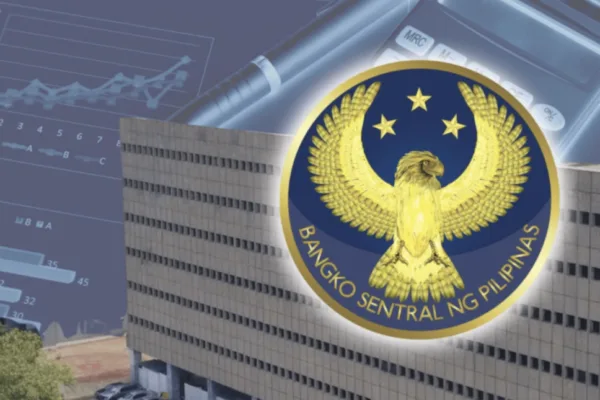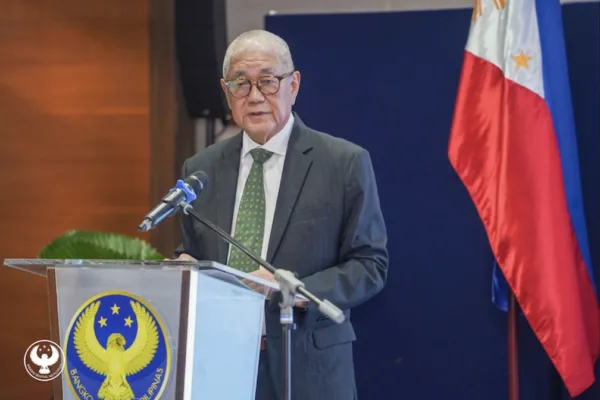The Bangko Sentral ng Pilipinas (BSP) is sharpening its focus on the intersection of sustainable finance and data-driven governance, underscoring how both can accelerate the country’s progress toward climate resilience and long-term development.
At the Blended Finance Forum for the Philippines, held from October 15 to 16 at the BSP Head Office, Governor Eli M. Remolona, Jr. stressed that mobilizing climate adaptation finance remains one of the country’s most urgent challenges. Despite the Philippines’ vulnerability to extreme weather events, adaptation projects receive only five percent of global climate funding.
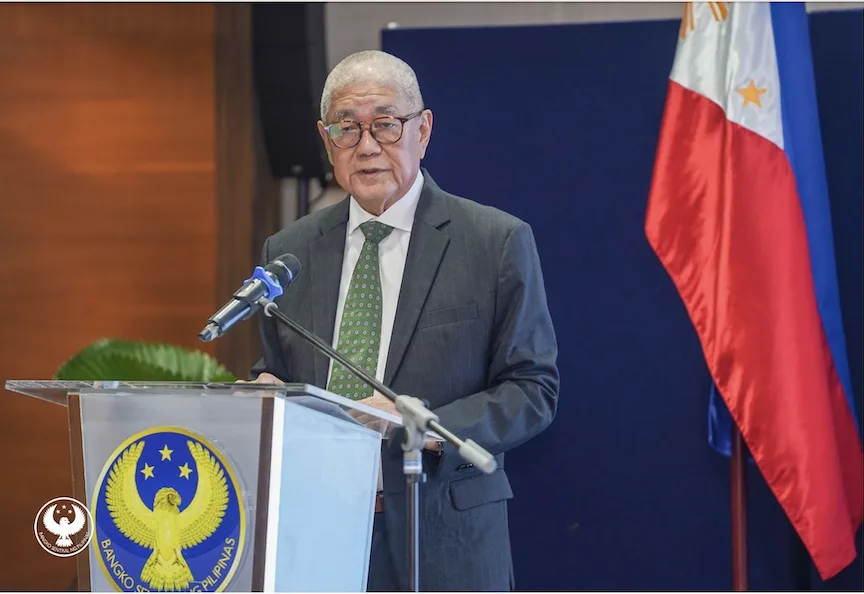
BSP Governor Eli M. Remolona, Jr. speaking at the Blended Finance Forum for the Philippines
“It is about being ready before the disaster strikes,” Remolona said, citing how areas with mangrove cover rebounded more quickly after Typhoon Yolanda — an example of what he called the “resilience dividend.” Blended finance, he added, can play a “transformative role” in scaling investments that help communities anticipate and withstand the effects of climate change.
Uniting climate finance and data for national progress

Ritesh Thakkar, Senior Advisor and Head of Asia Pacific of Convergence, defined blended finance as the use of catalytic capital from public or philanthropic sources to crowd in private-sector investments.
Such structures, he noted, can unlock capital for sectors where financing gaps persist, including agriculture, MSMEs, and nature-based solutions.
The event — co-organized by the BSP, Australia’s Department of Foreign Affairs and Trade, and Convergence — gathered stakeholders from government, financial institutions, and development partners. Discussions focused on building a pipeline of investable climate adaptation projects and strategies to mobilize domestic capital.
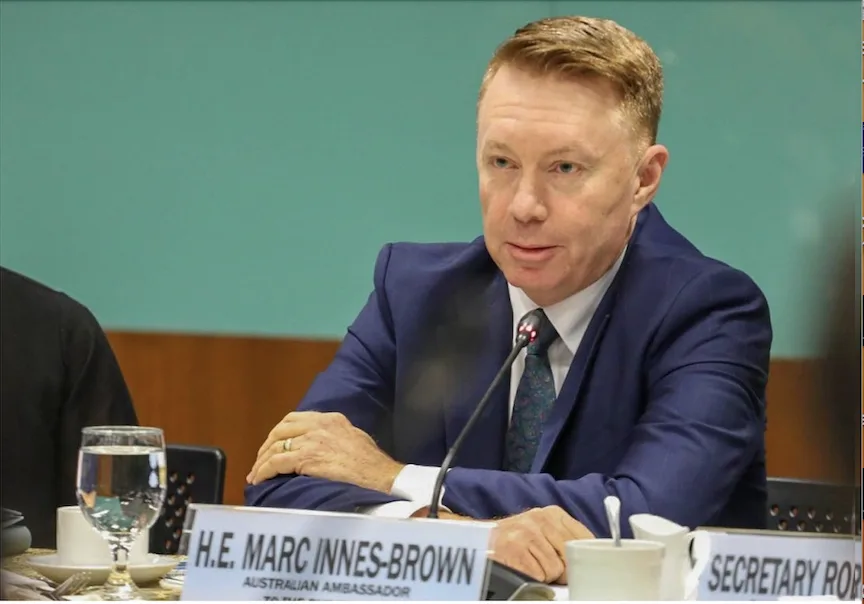
Australian Ambassador Marc Innes-Brown
A high-level roundtable, attended by Australian Ambassador Marc Innes-Brown and Climate Change Commission Secretary Robert E.A. Borje, highlighted the importance of public-private collaboration in strengthening the country’s climate agenda.
The forum forms part of the BSP’s broader Sustainability Agenda, which supports the National Adaptation Plan 2023–2050 and aims to align the financial sector with the country’s climate priorities.
BSP links data innovation with climate resilience
Just weeks later, the BSP again emphasized the importance of evidence-based policymaking — this time during the closing ceremony of the 36th National Statistics Month (NSM) on 28 October.
Speaking at the event, Monetary Board Member Rosalia V. De Leon said reliable and inclusive data remains central to understanding people’s needs, measuring progress, and shaping responsive policies. “Data is the lens through which we understand our people’s needs, and the map that helps us reach a better future,” she said.
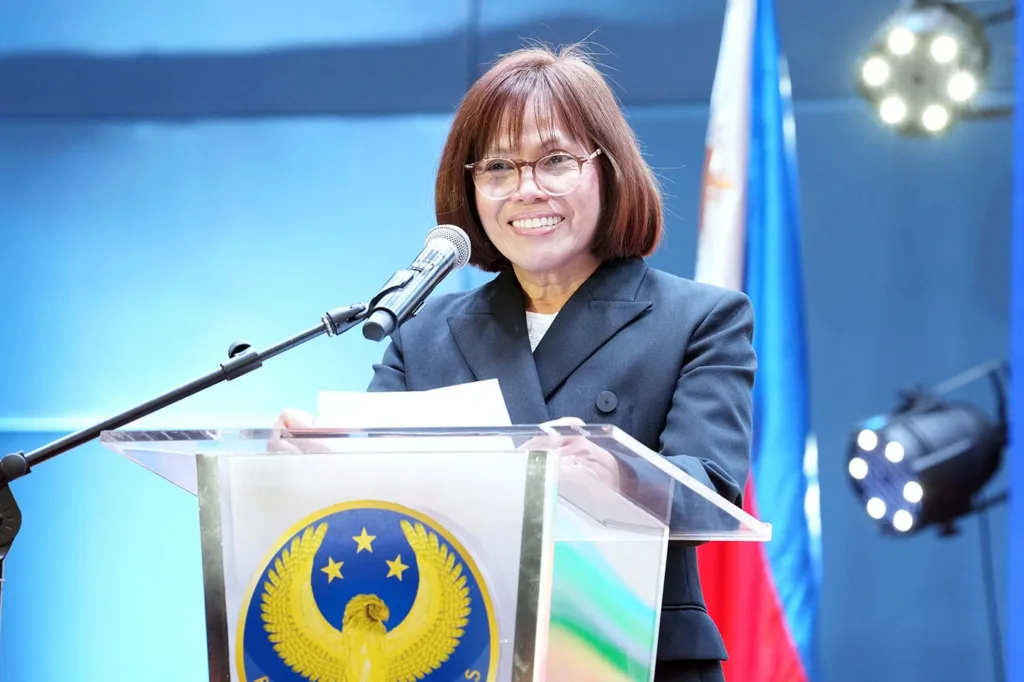
BSP Monetary Board Member Rosalia V. De Leon delivers the keynote speech at the closing ceremonies of the 36th National Statistics Month
The month-long NSM, themed “Accelerating the Sustainable Development Goal (SDG) Pace of Progress: Mobilizing Data for All,” highlighted how accessible, well-utilized statistics can drive effective governance and help identify areas requiring urgent intervention. Activities throughout October included panel discussions, scientific sessions, and interactive exhibits organized by various agencies in the Philippine Statistical System.
During the closing ceremony, the Philippine Statistics Authority recognized government agencies, LGUs, private organizations, and youth groups that contributed to strengthening the country’s statistical ecosystem.
As the BSP advances both climate-related financing and data-driven policy advocacy, the central bank is signaling a unified push toward resilient, evidence-based, and sustainable development—one that positions the Philippine financial sector as a proactive player in addressing climate risks and achieving the SDGs.







